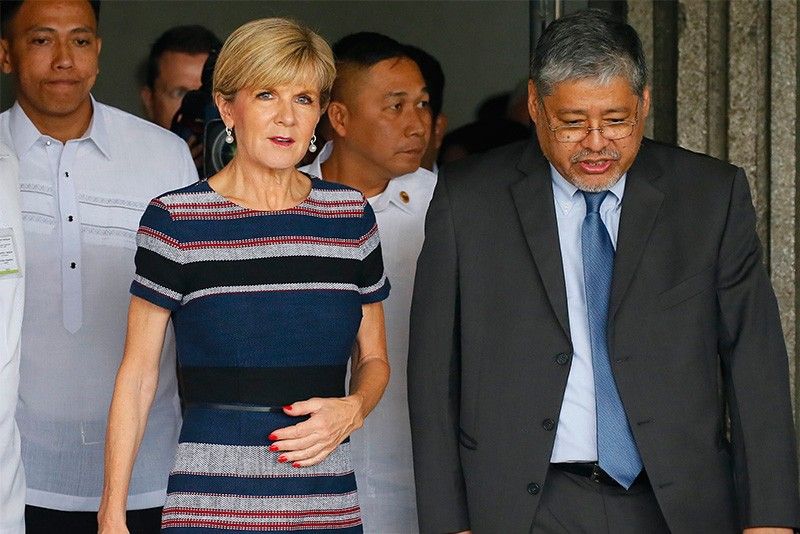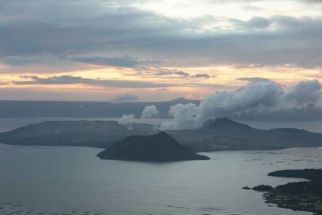DFA mum on inclusion of tribunal ruling in code of conduct talks

Manila, Philippines — The Department of Foreign Affairs on Thursday refused to directly say that the arbitral ruling in the South China Sea would be considered in the drafting of a code of conduct among parties to the dispute.
Speaking at a press conference at the DFA office in Manila, Foreign Affairs Secretary Enrique Manalo also expressed optimism that a code of conduct could be achieved after parties to the dispute agree on a draft of the framework.
When asked if the July 2016 arbitration ruling would be considered in the discussions on a code of conduct, Manalo said that the DFA is treading carefully.
“We are going on this very carefully, the code of conduct. We’re starting off with a framework and we’re a looking at broad topics. The details will have to be negotiated,” he said.
Manalo said that the draft of the framework of the code of conduct could serve as the basis of the negotiations of countries that have overlapping claims in the South China Sea on the actual code of conduct.
“It’s not the draft of the code of conduct. It’s the draft of the framework of the code of conduct. It’s just the first draft. The significance of this draft is if we can get a framework on the code of conduct it will be a basis then to proceed on the actual negotiations of the code of conduct,” Manalo said.
He said that this was positive development considering that parties do not even have any framework or outline of the code on paper yet.
Basis for an actual code
“Because prior to this year, we’ve not had any paper — whether a framework or outline of a code. So if we can get an agreement on the framework paper, that will be the basis upon which to proceed on the actual negotiations of a code,” Manalo said.
“The important thing is now we’re talking about it and we are now working on a paper that will be the basis of negotiations on an actual code.”
China announced last week the agreement on the code as it noted that significant easing of tensions in the disputed waters.
China and the 10 members comprising the Association of Southeast Asian Nations have been working since 2010 on a set of rules that would help them avoid conflicts considering the overlapping claims in the region.
China claims almost the entire South China Sea which is belived to holding large deposits of resources.
About $5 trillion worth of trade also passes through these waters yearly. The Philippines, Malaysia, Brunei, Vietnam and Taiwan also claim parts of the area.
Arbitration case
The Philippines filed an arbitration case against China's claim in the Hague, and this cooled relations between the two countries.
Despite the case, China continued to build military structures on artificial islands in the region.
Last year, the tribunal at the Hague ruled in favor of the Philippines, saying China's nine-dash-line claim over a large part of the sea has no legal basis.
However, this was met with a sober reaction from Manila. President Rodrigo Duterte, who has been pursuing an independent foreign policy, wants to have a closer relationship with Beijing.
China has rejected the ruling and has said the proceedings, which it did not join, are invalid.
Manalo said that the DFA's priority would be to ensure that there would be a basis for more cooperation in the region.
He added that mechanisms to avoid conflict and provide stability and peaceful settlement of disputes should also be put in place.
“What we will be guided by are many elements that will provide a basis for more cooperation in the South China Sea, measures that would provide stability and peaceful settlement of disputes and definitely measures that will tend to avoid raising tensions in the South China Sea. That’s the aim. It’s a cooperative mechanism,” he said.
- Latest
- Trending


























